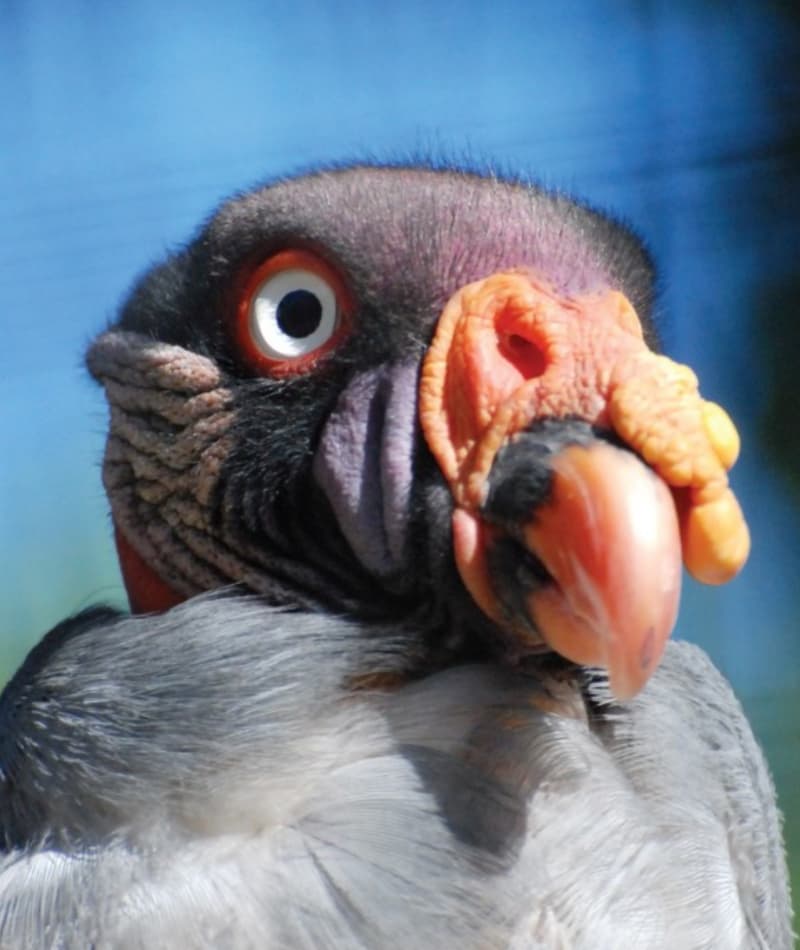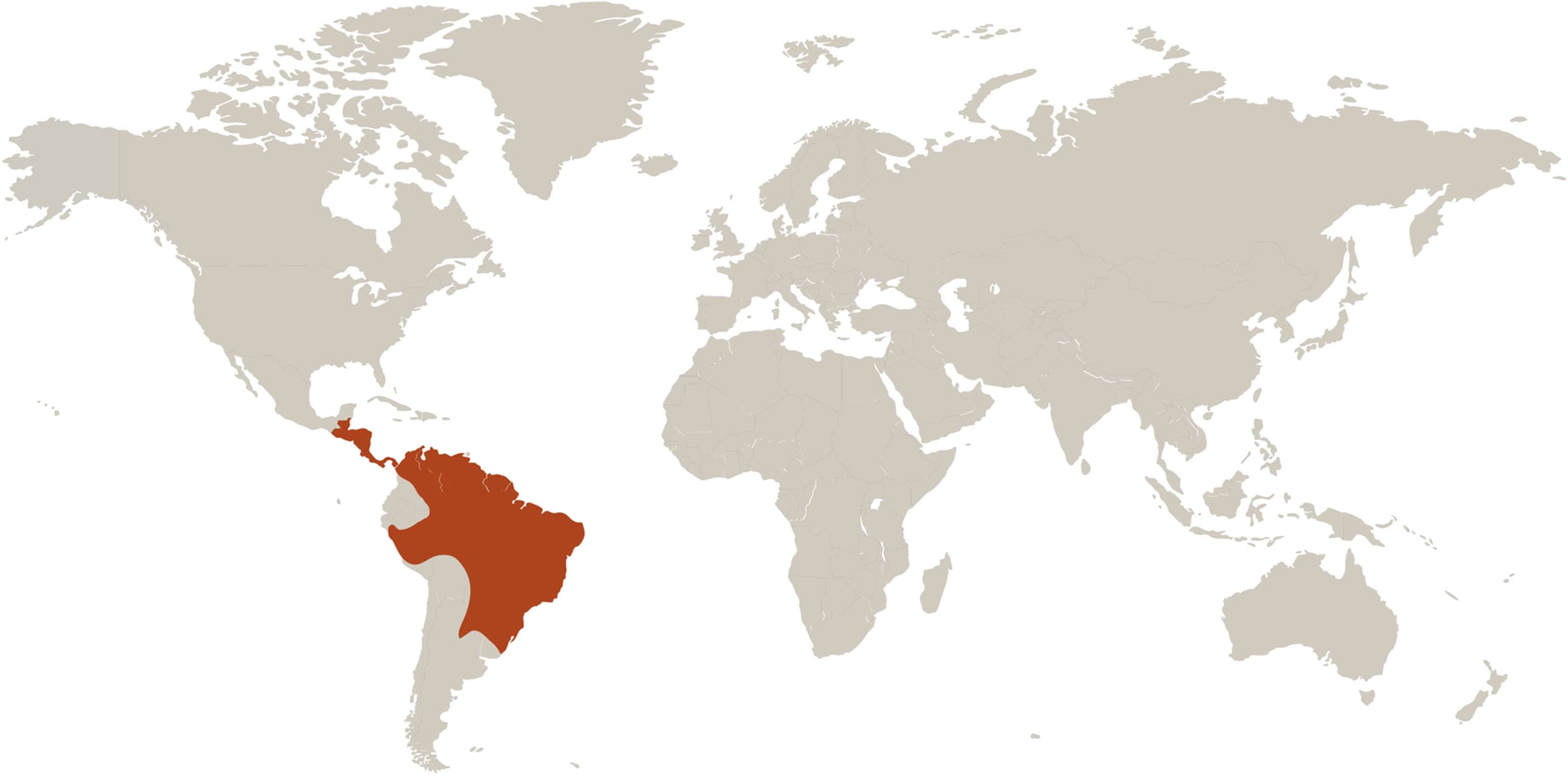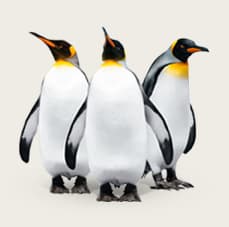
King Vulture
Sarcoramphus papa
Did you know?
- This colorful vulture makes its home in the tropical rainforests of Central and South America.
- The absence of feathers on a vulture's head helps the bird "clean up" after a messy meal.
- It can soar in the air for hours without flapping its wings.
- They nest on the group in tree stumps or hollow logs.
- A female produces just one egg, and both parents incubate (sit on) the egg until it hatches.
Nature's Cleaning Crew
Like all vultures, the king vulture is a scavenger and is adept at finding dead animals, even in dense forests. Although this may seem to us a distasteful lifestyle, the vulture plays an important role in the complex forest ecosystem. Vultures play a vital role in the environment by cleaning up carcasses and preventing the spread of disease.
Vultures in Trouble
Vultures are vanishing around the world at an alarming rate. Of the 23 species of vultures in the world, 11 are currently threatened. These birds are declining due to poisoning from feeding on medicated cattle carcasses, power line collisions and loss of food and habitat.
Threat Level
- Unknown
- Common
- Near Threatened
- Threatened
- Endangered
- Critically Endangered
- Extinct in the Wild
Common
The King Vulture is widespread and abundant.
Range
Mexico, southern Central America, South America
Habitat
Forests, savannas

We care about king vultures
The Saint Louis Zoo supports king vultures at the Bird House and Bird Garden.
Find this animal in Historic Hill

SAINT LOUIS ZOO ZONE
Historic Hill
Historic Hill is a lovely stroll through one of the oldest parts of the Saint Louis Zoo. From the 1904 World’s Fair Flight Cage to the Spanish architectural flavor of the 1920s in the Bird House, Primate House and Herpetarium to the finishing touches of our thoroughly modern exhibits, this area of the Zoo has a unique ambiance and a nostalgic history that make it a great destination.

